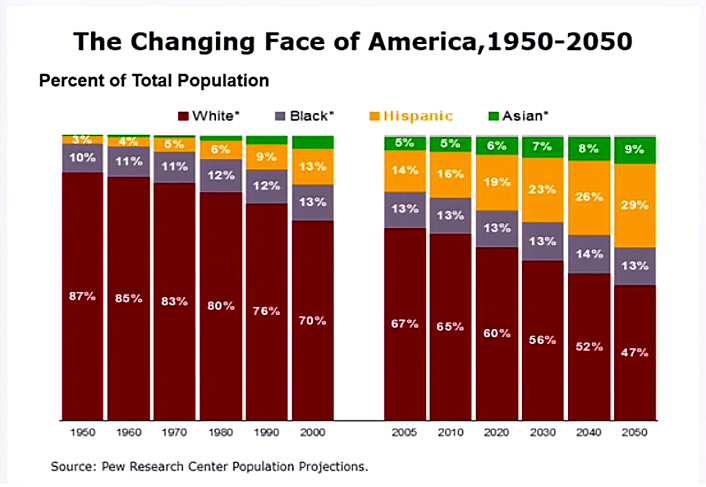I’m often asked about trends in church planting, and I love encouraging church planters and church planting. It’s been seven years now since I left the last church that I planted, Grace Church, which now meets in a renovated barn / wedding venue. Anyway, I stay connected through research and through the NewChurches.com podcast, and here’s a recent article that I published with The Focused Pastor, shared here as well.
In just a few decades, we’ve witnessed an explosion of interest and engagement in North American church planting. What was just a sideshow that a few entrepreneurial folks did in the 80s and 90s is viewed as the main act for many church leaders today. The church planting boom has reordered the priorities of many denominations, who are now directing significant resources to see new churches established and providing training for their prospective pastors in how to plant well. We’ve also seen a host of effective church planting networks emerge onto the main stage with aggressive plans to plant their next church in a town near you.
Still, challenges remain. Like any movement, challenges exist that threaten the vitality and longevity of church planting. We must consider how to address them. This list certainly isn’t exhaustive, but I’ve identified 9 challenges that could hinder the forward advance of church planting.
1. Many Established Churches Are Still Resistant to Planting
While many more churches emphasize planting today than when I planted my first church in the 80s, many established churches still resist planting churches. This resistance can take the form of outright hostility to a new church in town. But it can also be demonstrated in the lack of prioritizing multiplication within the established church itself.
This resistance can be attributed to several reasons, including the fear of losing key members, finding competent and called planters, and a lack of a kingdom vision that sees far beyond the local church.
I can understand the impulse to resist. If a pastor is leading a struggling established church, the last bit of news you want to receive is that a young, energetic, and entrepreneurial planter is coming to town, backed by the resources of a denomination or network.
But not only is a broader, kingdom-minded vision toward the expansion of the body of Christ biblically faithful, it also benefits the established church. As Tim Keller has said, “The continual planting of new congregations is the most crucial strategy for … the continual corporate renewal and revival of existing churches.” Studies repeatedly show that when an established church catches a vision for multiplication, it breathes new life into the existing church. (There is a free video course designed to equip churches to become sending churches available here.)
2. Church Plants Often Delay Developing a Culture of Multiplication
Sometimes it is not an established church that resists planting. New churches often wait until they are well established to begin involvement in planting other churches. As I wrote here, new churches need to be like the Tribbles from the original Star Trek series. Tribbles were born pregnant and spread at an incredible pace. New churches need to take root in their communities with a similar “born pregnant” culture. Planters don’t have to wait until they’re ten years in, have a multi-million dollar budget, and have hundreds of people to create a culture of multiplication.
What’s more, multiplication has everything to do with the development of leaders, not merely the gathering of resources. In other words, the only thing your church needs to multiply is a ready leader to send. A ready leader will often succeed without an abundance of resources.
Churches that lack a multiplication culture often also lack a development culture. In a development culture, leaders focus on developing future leaders to send out. Even without resources, ready leaders will succeed. We see this play out in the Book of Acts where the church was determined to multiply at any cost. Church plants that delay establishing a culture of multiplication risk setting their churches on a steady path toward stagnation.
A culture of multiplication must become imbedded in the DNA of a church at all levels for it to impact planting. As I said here, “We cannot lead what we do not live. We must be multipliers.”
3. Some Would-Be Church Planters Just Don’t Want the Sacrifice
Church planting always requires sacrifice. When someone plants a new church, they must count the cost. It requires you to sacrifice time and money. It often requires you to uproot and relocate your family to the new context. If you’re a pastor sending out a group of people to plant, it also is a sacrifice of people.
Once the church launches, the new planter often deals with a lot of relational upheaval. Often the type of people that join the effort to get a new church off the ground are not the same people who will stay rooted in that church for years to come. Church planting is a strange mix of the thrill of seeing people come to know Christ and serving your community through an outreach event that involves cleaning porta-potties after a Memorial Day celebration—all to the glory of God.
In recent years, the training and funding provided by denominations and networks has reduced the severity of some of the sacrifices involved in church planting. Many of these groups invest tens of thousands of dollars into each church plant and provide best practices that catalyze growth and avoid the mistakes of those of us who learned best practices the hard way.
And yet, in our consumer culture, we can easily forget how sacrifice is a kingdom value (Luke 9:23). This video of Duke women’s basketball coach Kara Lawson talking about the value of “handling hard well” is a good word for church planting. Church planting is on the frontier of missional work and will necessarily require sacrifice.
4. Churches Lack Community With Churches in Other Contexts
Despite a dramatic push toward mutual learning and cooperation in recent years, many churches (or their leaders) remain isolated relationally. This isolation hinders cooperative work that can be done to see new churches planted.
It’s possible to cultivate meaningful relationships across denominational boundaries without compromising your convictions or denominational distinctives. These relationships provide learning opportunities that leaders can take back to their own church traditions to improve their church planting efforts.
Additionally, it is becoming increasingly popular for multiple churches, who alone do not possess the resources to plant a church, to band together to see a new church planted in a nearby community. This is a great way to leverage relationships to make real and substantial kingdom impact.









 Why is it important for us to think deeply about fulfillment, significance, and meaning when it comes to our work in this world? In this week’s conversation on FrontStage BackStage, host Jason Daye is joined by Barry Rowan. Barry is a graduate of Harvard Business School and has been instrumental in building and transforming eight different businesses, including one that was sold for $10 billion. Barry has immersed himself in connecting the daily grind with the divine, and he is the author of “The Spiritual Art of Business.” Together, Barry and Jason look at rethinking our view of fulfillment in our lives and ministries. Barry also provides some incredible wisdom and encouragement when it comes to work and rest, activity and contemplation.
Why is it important for us to think deeply about fulfillment, significance, and meaning when it comes to our work in this world? In this week’s conversation on FrontStage BackStage, host Jason Daye is joined by Barry Rowan. Barry is a graduate of Harvard Business School and has been instrumental in building and transforming eight different businesses, including one that was sold for $10 billion. Barry has immersed himself in connecting the daily grind with the divine, and he is the author of “The Spiritual Art of Business.” Together, Barry and Jason look at rethinking our view of fulfillment in our lives and ministries. Barry also provides some incredible wisdom and encouragement when it comes to work and rest, activity and contemplation.














